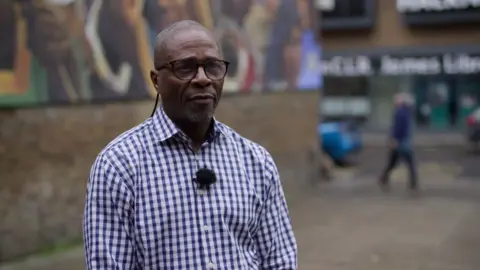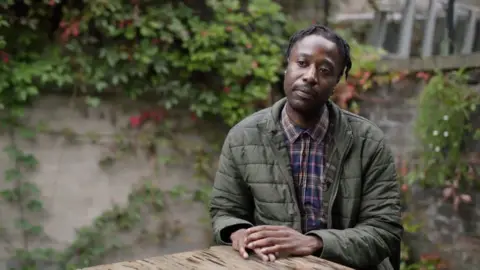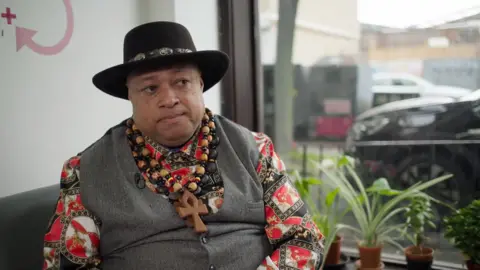Tackling mental health stigmas in Afro-Caribbean communities
 BBC
BBC"There is significant stigma within African-Caribbean communities around mental health and its connotations,” says Peter Merrifield.
The north-east Londoner’s personal experience of mental health challenges spurred him on to set up a social enterprise to help others from an African and Caribbean heritage.
Five years on, Support When it Matters (Swim) runs sessions in Hackney and across 13 London boroughs.
"Even though I had overcome my own mental health difficulties, I looked around and saw many people who hadn't, particularly men of African-Caribbean heritage who seemed to not be able to access services which were going to help them," says Hackney-born Mr Merrifield.
Figures show that Hackney is one of London’s most diverse boroughs, with a population of more than 250,000 and about 90 languages spoken.
Swim aims to help tackle the systemic barriers that affect black people in the UK's mental health system by prioritising talking therapies over medication and hospitalisation.

Among those the organisation has helped is Jeanperry Mundabi.
Mr Mundabi was a professional dancer until he was hit by a car when cycling in London last year.
He says the social enterprise "saved" him.
"I ended up being homeless. If it wasn't for Swim, I would not be alive because I didn't feel seen," he says.

Funding for Swim, which also employs staff from an African and Caribbean heritage, comes from the local council, public health, charities and the prison service.
Elisha Griswood-Morris is a recovery practitioner and mental health first aider for the social enterprise.
"Mental health is seen as bad in the communities, it's seen as a weakness, it's seen as a failing and it's something not talked about," he says.
He says Swim "creates a comfort zone" because of its cultural awareness and acceptance.
"Normally people like someone that looks like them, sounds like them and uses the same language."
With World Mental Health Day on Thursday, Swim hopes its culturally-informed approach will help people from African, Caribbean, and dual heritage backgrounds, who otherwise might have struggled, find the right support.
You can watch the latest edition of Politics London in full on BBC iPlayer
Listen to the best of BBC Radio London on Sounds and follow BBC London on Facebook, X and Instagram. Send your story ideas to [email protected]
